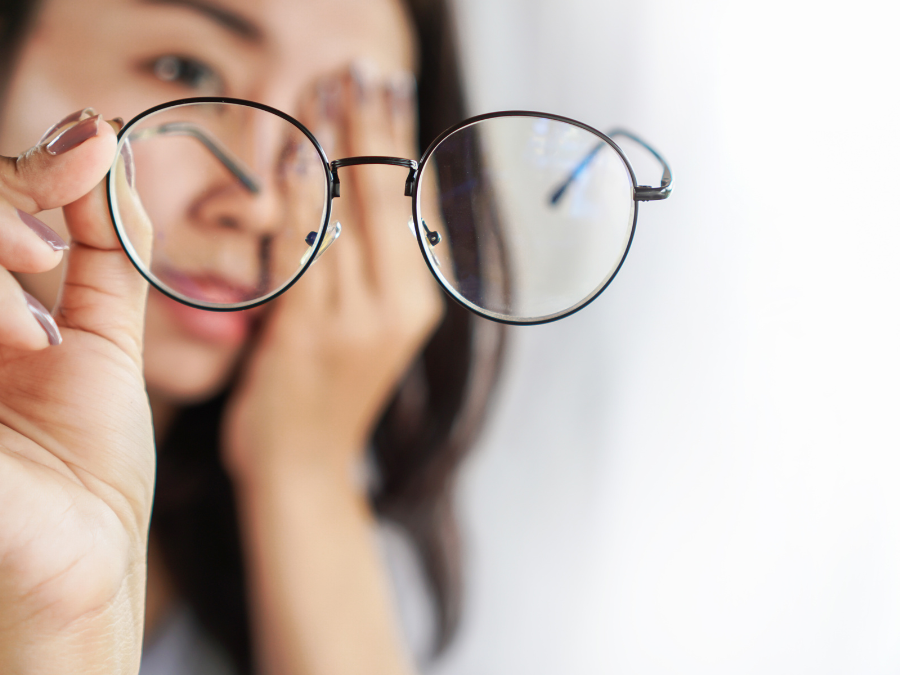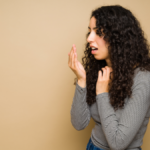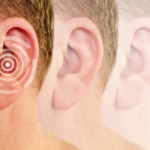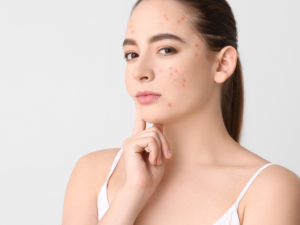Curious if allergies can cause dry eyes?
Have you ever wondered why your eyes get watery and itchy during certain seasons?
The answer often lies in an allergic reaction.
Dealing with allergies can be challenging, especially when they affect our eyes, causing discomfort and irritation.
Let’s dive into the world of eye health and explore how allergies can influence our daily activities – and what we can do about it.
Disclaimer: This article aims to provide a basic understanding of how allergies can lead to dry eyes and is intended for informational purposes only. It should not be used as a substitute for advice from a professional healthcare provider. If you suspect you have dry eyes or experience any eye-related symptoms, please contact your eye doctor or healthcare provider immediately. The views expressed here do not constitute medical advice, and do not represent the views of all medical professionals; they are solely the opinions of the author.
Can Allergies Cause Dry Eyes? Unravel the Mystery
Getting straight to the answer, yes, allergies can indeed cause dry eyes.
Imagine this: you’re in your science class, eagerly dissecting a frog specimen.
Suddenly, your eyes start to itch, they turn red, and you can’t stop blinking. This could be a sign of dry eyes caused by allergies.
This article will help you understand the link between allergies and dry eyes, how to manage symptoms, and ways to prevent them.
Managing Eye Symptoms Caused by Allergies
When allergens affect our eyes, it can lead to a variety of symptoms that can disrupt our daily activities.
Understanding these symptoms is the first step to managing allergies effectively.
Identifying Eye Allergy Symptoms
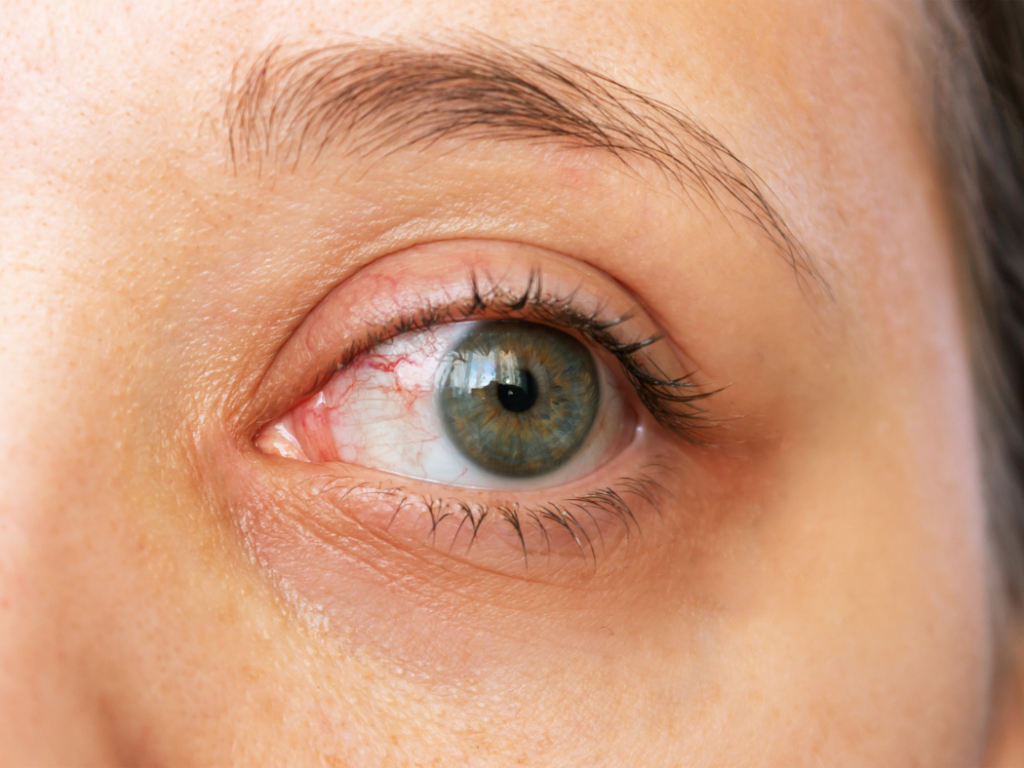
Common Eye Symptoms Cause by Allergy:
- Redness
- Watery eyes
- Swelling around eyes
- Burning sensation
- Light Sensitivity
- Intense urge to rub due to itchiness
The common symptoms of eye allergies include red, itchy, and watery eyes.
In some cases, you might even experience a burning sensation or light sensitivity. If these symptoms persist, it’s time to see your eye doctor for a comprehensive eye exam.
Are you aware that allergies can also lead to dry mouth? Make sure to read our post on this topic if you’re experiencing similar symptoms.
Symptom Management Options
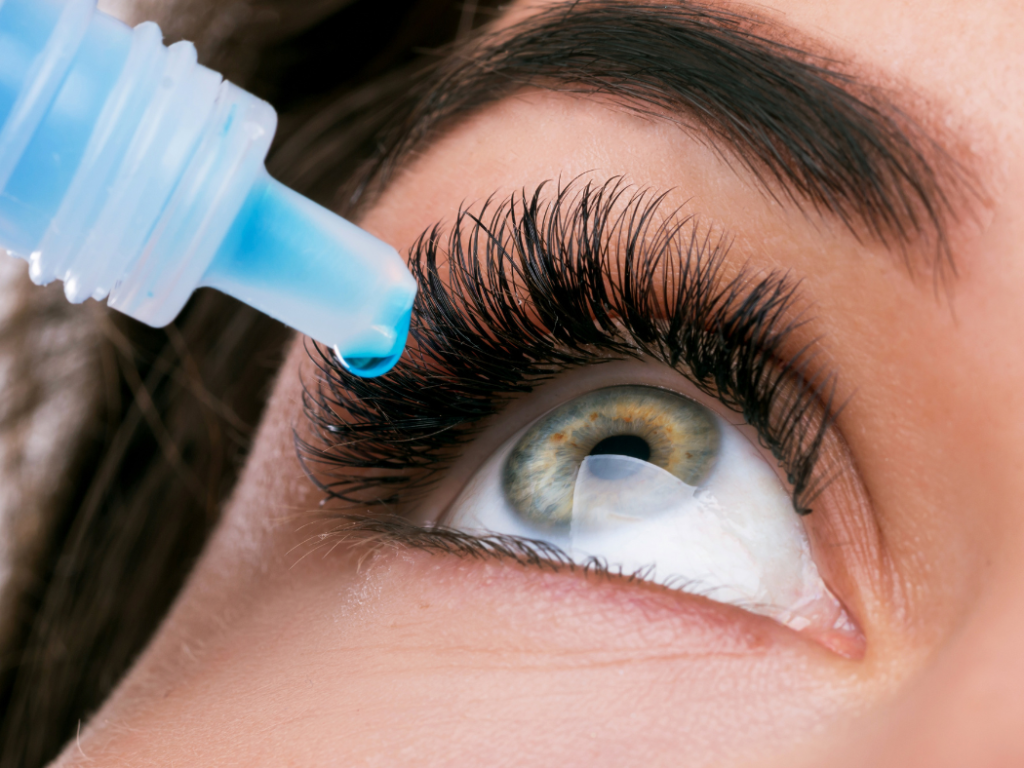
Warm compresses can be helpful for dry eyes by improving meibomian gland function.
This gland produces the oily part of your tears, which helps prevent evaporation.
Additionally, using artificial tears can help provide relief for dry and itchy eyes.
If your symptoms persist, it is important to consult with your medical providers as soon as possible.
Treatment Options
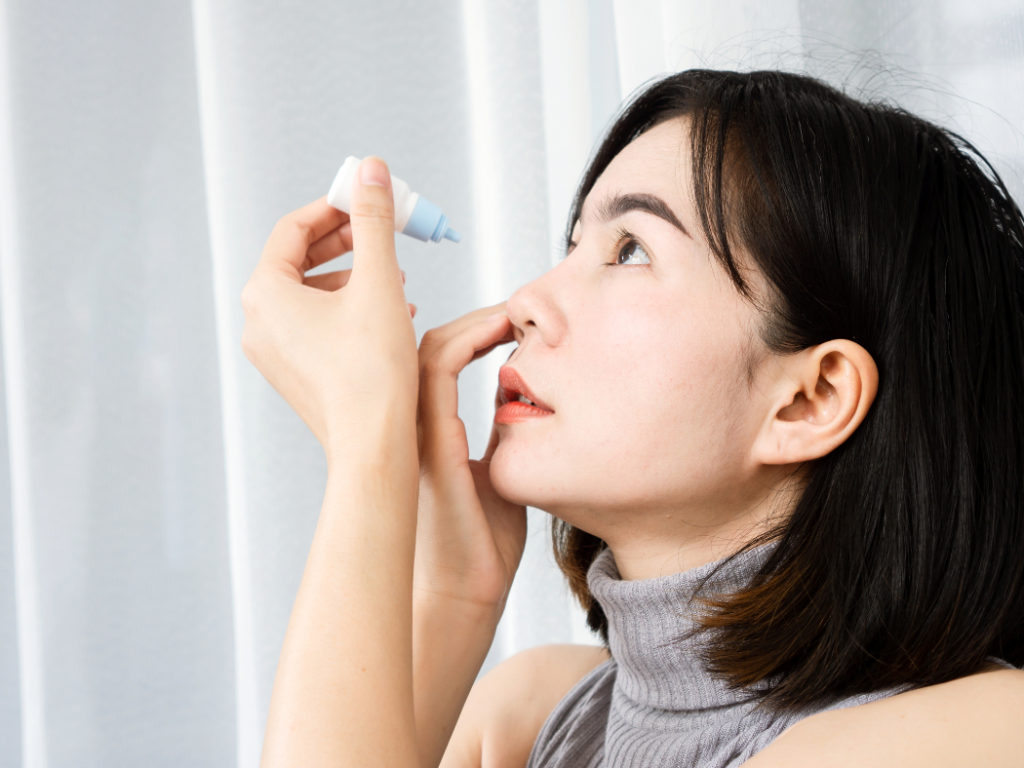
- Topical eye drops (OTC or prescription drops)
- Omega-3
- Oral antihistamines
There are several treatment options for eye allergies, from over-the-counter eye drops to prescription drops and oral antihistamines.
Also, according to a study called DREAM (Dry Eye Evaluation and Management), omega-3 proved to be more effective for patients with dry eye compared to placebo.
Your eye doctor can recommend the best treatment based on the severity of your symptoms and the cause of your allergies.
Lifestyle Changes
- Create a clean and dust-free living space
- Minimize exposure to allergens
- Limit outdoor activities
I understand it sounds too obvious, but apart from medical treatments, making some lifestyle changes can also help manage eye allergy symptoms.
For instance, limiting outdoor activities during high pollen seasons or keeping your home free from dust and allergens can significantly reduce your exposure to allergens.

There are loads of handy products that can assist you, like a UV allergen vacuum or a top-notch vacuum cleaner with a HEPA filter.
What Are Allergic Reactions?
When our immune system encounters something it perceives as harmful, it triggers an allergic reaction.
This could be anything from pet dander and dust mites to pollen. For some people, these immune responses manifest as symptoms in their eyes.
The Role of the Immune System
The immune system is our body’s defense against harmful substances.
However, when it misidentifies harmless environmental factors as threats, it can cause an allergic reaction.
This reaction often involves the release of histamine from mast cells, leading to typical allergy symptoms like a runny nose, nasal congestion, and, of course, eye issues.
Common Allergens

Common allergens include pet dander, dust mites, and pollen.
These usually harmless substances can become potential causes of allergic reactions.
Direct contact with these allergens can lead to uncomfortable symptoms, especially in your eyes.
Seasonal vs. Perennial Allergies
Seasonal allergies, often known as hay fever, occur during particular seasons, like spring or fall when certain allergens are high.
Meanwhile, perennial allergies are year-round allergies that can be triggered by things like dust and pet dander at any time.
Understanding the Connection Between Allergies and Dry Eyes
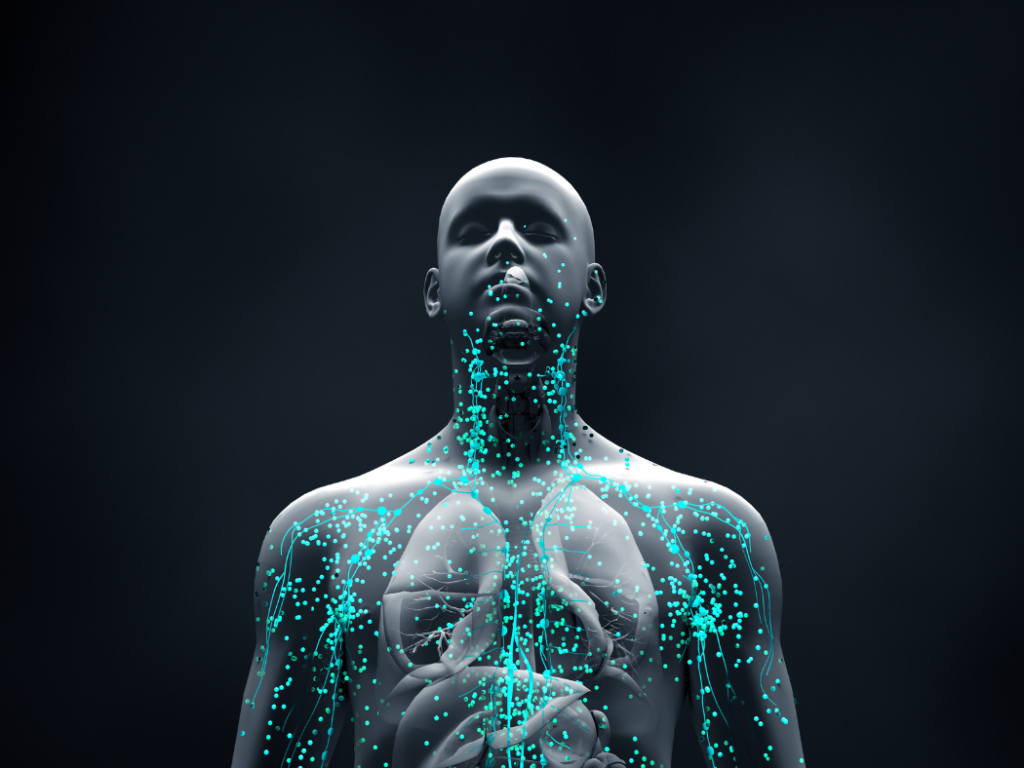
What’s Happening Inside?
When an allergen, like pollen or dust mites, enters your eyes, your immune system goes on high alert.
It releases substances to combat these invaders, causing your eyes to turn red and watery.
Why Dry Eyes, Though?
Ironically, even though your eyes produce enough tears, the quality of these tears isn’t good enough to keep your eyes moist.
This results in a condition called ‘dry eyes’.
From Your Science Class to Your Backyard
Imagine you’re playing with your dog in your backyard.
You might not realize it, but pet dander could be causing your eyes to become itchy and dry.
As we’ve seen, allergies can indeed be a pain, especially when they affect our eyes.
But with a better understanding of allergic reactions and how they impact our eye health, we can better manage these symptoms and continue to enjoy our daily activities with minimal disruption.
Remember, when in doubt, always consult your eye doctor to ensure you’re getting the correct diagnosis and the best treatment plan tailored to your needs.
FAQs
Are Allergies the Only Cause of Dry Eyes?
No, several other factors can cause dry eyes, including wearing contact lenses for extended periods and certain medical conditions.
How Can I Distinguish Between Allergies and Other Causes of Dry Eyes?
Keep an eye out for other symptoms like a runny nose or sneezing, which usually accompany allergies. If you’re not sure, it’s best to see an optometrist.
Can I Prevent Dry Eyes?
Absolutely! Simple steps like avoiding allergens, using air filters, and maintaining good eye hygiene can go a long way in preventing dry eyes. Keeping yourself hydrated is also crucial.
What Are the Best Treatment Options for Dry Eyes?
There are various treatment options, including artificial tears, medicated eye drops, and lifestyle changes. It’s best to consult your eye doctor to determine which treatment will work best for you.
Is There a Cure for Dry Eyes?
While there is no permanent cure for dry eyes, proper management and treatment can greatly improve symptoms and provide relief. With the right approach, you can effectively manage dry eyes and maintain healthy vision.
This is just the beginning of our journey to understanding how allergies can result in dry eyes. As we delve deeper into the article, we’ll uncover more exciting information, so stay tuned!
References
- American Academy of Opthalmology: A Quick Guide to Dry Eye
- Dean McGee Eye Institute: How to Tell the Difference Between Dry Eye and Allergies
- Hussain M, Shtein RM, Pistilli M, Maguire MG, Oydanich M, Asbell PA; DREAM Study Research Group. The Dry Eye Assessment and Management (DREAM) extension study – A randomized clinical trial of withdrawal of supplementation with omega-3 fatty acid in patients with dry eye disease. Ocul Surf. 2020 Jan;18(1):47-55. doi: 10.1016/j.jtos.2019.08.002. Epub 2019 Aug 16. PMID: 31425752; PMCID: PMC7004875.

